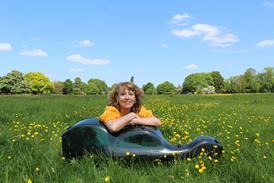Marking the violinist's 75th birthday, we republish this feature from our archive in which Perlman warns against the dangers of over-practising
This is an extract from a longer interview with the violinist celebrating his 70th birthday, in the August 2015 issue. To subscribe to the magazine click here.

What are the pitfalls of practising? Well, if you don’t practise thoroughly you can get yourself into a situation where not only do you fail to accomplish what you set out to achieve, but you can make the situation worse! A lot of practising involves repetition, and if you repeat something out of tune for five hours a day, your brain will remember that repetition. Thereafter, every time you play that passage, it will be out of tune. The same goes, sometimes, for works you performed as a kid. If you played something at six or seven years old, 10 or 20 years later, the mistakes of childhood will come back to haunt you.
When kids ask me for an autograph, I always sign my name and then write, ‘Practise slowly!’ That’s my message to them. If you practise slowly, you forget slowly. If you practise very quickly, maybe it will work for a day or two and then it will go away, because it has not been absorbed by your brain. It’s like putting a sponge in the water. If you let it stay there it retains a lot of water.
Watch: A comparison: Itzhak Perlman plays Mendelssohn in 1983 and 2011
Read: Itzhak Perlman: If you teach others, somehow you teach yourself
Watch: Juilliard students 'do' Bolero with guests including ITzhak Perlman and Yo-Yo Ma
I don’t practice regularly any more – just as needed. By now I have enough experience to know when a particular passage needs work. I don’t do scales and exercises – but young people should not copy me in this! I did my scales due diligence when I was growing up – especially with my first teacher, who was a scale fiend. I would practise an hour of scales every day and an hour of etudes every day. These really helps when you study new pieces with basic technical challenges. I tell my students, ‘If you do your scales properly it will save you a lot of time.'
There are a lot of people who believe that the more you practise the greater the improvement, but I don’t believe that. Again I cite the sponge example. When you put a sponge in the water, after a while it reaches saturation point. Keeping it in there for any longer won’t help, as it’s absorbed as much as it can. That’s the way our brain works. Generally speaking, I never practise more than about three hours a day - sometimes in the summers I might practice an extra hour. I would say five hours is the absolute maximum. After that it can cause physical problems.


































No comments yet